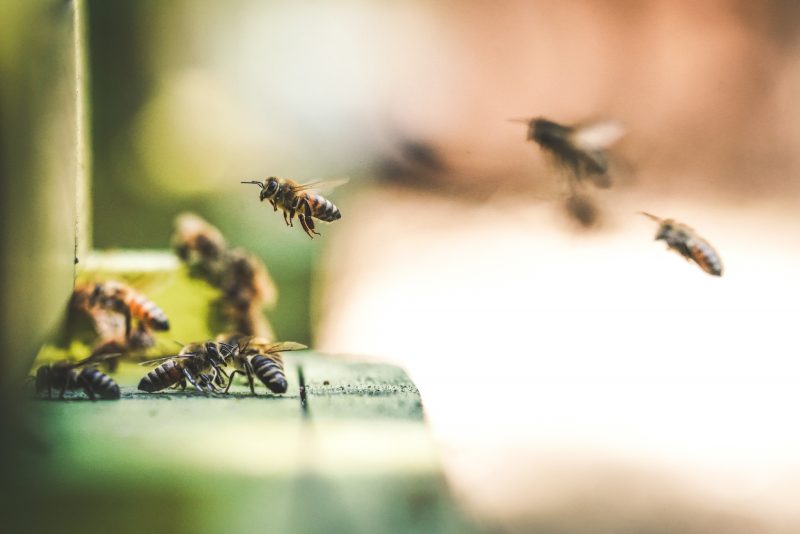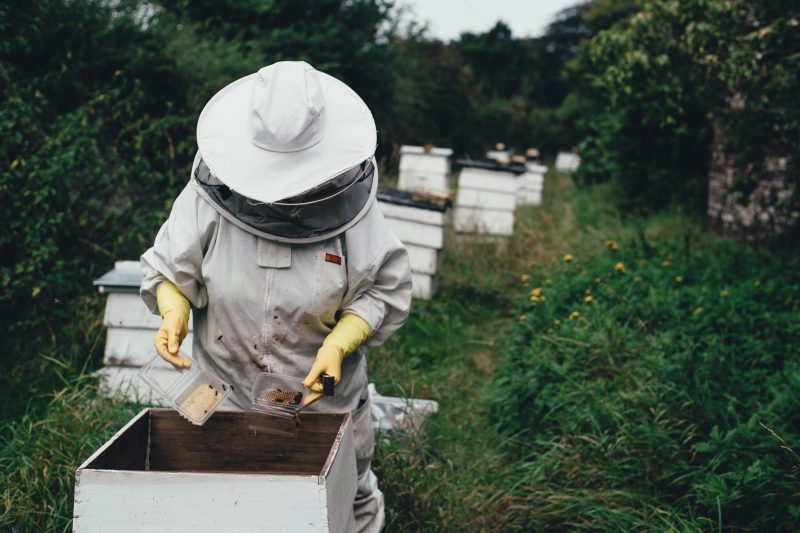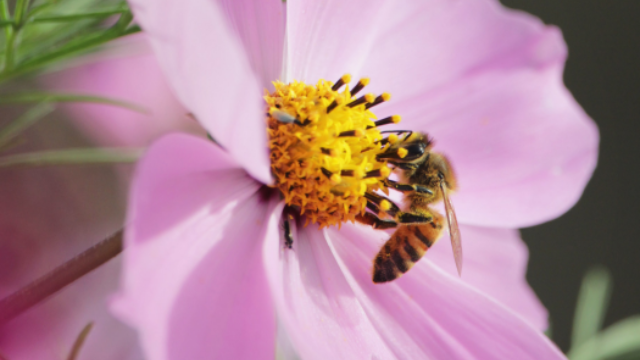To bee, or not to bee
Could humans survive an "insect apocalypse"? Our partners in Peru explore the vital importance of bees and other pollinating insects.

Pollination is one of the most important biological processes on the planet. Without it, most crops and wild plants could not reproduce; it supports animals, food chains and entire ecosystems. 75% of the crops consumed by humans need insect pollination to survive and reproduce, primarily by bees.1 For this reason, bees are essential in maintaining global biodiversity, supporting human nutrition, and providing income to agricultural communities.
But bees are also under threat. Despite their enormous value, bees are still not entirely recognized for their work and are exterminated on purpose or by accident. There have been recent serious declines in the numbers of pollinating insects and as a consequence, a decline in the plants that depend on them. Some are calling this the "insect apocalypse".
There are many different drivers for pollinator loss: climate change, habitat loss, and the use of pesticides are all having an impact. Most synthetic pesticides are lethal to bees, while other forms of herbicides can also damage bees' abilities to navigate or communicate. As the FAO has noted, many pesticides which are forbidden in developed countries are instead sold in developing countries at a cheap price, affecting the ecosystems in these regions. But the potential consequences might be felt world-wide.
Many crops have only a short window in which they can be pollinated; if they are not then the seeds, berries or fruit will not prosper and a whole harvest could fail. Timing is very important in these cases. Bees are therefore a vital resource for agroindustry, as they can pollinate a variety of flowers and are able to fly seven kilometers. The FAO points out some other positive aspects of pollination for crops such as better quality of harvest as well as protection of crops against pests. In many regions, the economic value of bees relies more on pollination than on honey or wax harvest production.
“ Morgan Freeman has transformed his 124-acre ranch in Mississippi for beekeeping, and Flea from the Red Hot Chilli Peppers has become a beekeeper in order to help restore the bee population.”
To address these threats, different actions are being taken. One of them is promoting alternatives to pesticides on small scale farms based on local traditional knowledge. Cooperation between beekeepers and farmers is also essential in finding a solution in the search for sustainable agriculture. The FAO is playing an important role in the coordination of the International Pollinators Initiative, in order to monitor pollinator decline as well as promote food security and build capacity in the management of pollination. As a response to these threats, Morgan Freeman has transformed his 124- acre ranch in Mississippi for beekeeping in order to support the growth of this pollinators. Even Flea from Red Hot Chilli Peppers became a beekeeper in order to help restore the bee population.
Although in different regions there have been losses, different studies demonstrate that numbers of hives of honey bees have risen by 45% worldwide2. Nonetheless, there has been a boost in the proportion of agricultural crops which depend on these pollinators, reason why the demand for pollinators is much higher than before and is not sufficient anymore. Agricultural growers have found a solution by renting honey bees to pollinate their crops.
Many crops which are worked by small scale farmers in Peru such as coffee and cacao are produced by pollination, providing an important income for these families. In a larger scale, the agriculture for export such as avocados and blueberries need pollinators for their fructification, as these are massive productions the rent for bees is necessary. Transforming bees in a new generator of income. It is estimated that in the year 2015 in the region La Libertad, 35 000 hives were needed for the production of avocados and blueberries, from which 70%-80% were rented hives from beekeepers. Each hive is rented in S/.150 which translates in an important income for these groups.
In Peru, beekeeping is usually achieved by small beekeepers that possess around 10 hives2, our wide biodiversity provides the context for the strong development of these activities. Peru’s national plan of beekeeping points out that only 37% of beekeepers have complete or incomplete higher education, this evidences that in most cases, this activity has initiated by other motives than professionals. Another important aspect of beekeepers is that 78% of them develop this activity among other activities such as agriculture or animal husbandry. This economic activity is starting to proliferate in our country as the demand for bees is increasing in the agroindustry sector.

As explained before, bees are also affected by changes in climate. Natural phenomena such as “El Niño” in Peru can affect bees as intense temperatures, such as the ones up north in the country, can cause bee suffocation or reproduction disorders. High temperatures also intensify the presence of bacteria, fungus and other pathogens which affects bees and their hives. In other regions of the country, this phenomenon presents itself by droughts which also affects bees as there is a lack of water and flowers nectar.
Although the situation of bees can become critical if little action is taken to preserve them, solutions such as beekeeping can also mean the proliferation of a new economic opportunity for smaller farmers. As part of the actions taken, Peru has joined the “coalition of the willing on pollinators” as part of their commitment to achieve the sustainable development goals, which tries to foster policy measures to protect pollinators at national levels through collaboration and support of the stakeholders involved.
Conclusions
Although the scenario of a complete loss of pollinators is unlikely, partial loss could translate in a production deficit of fruits and vegetables as bees are an important input for agriculture. Different studies present evidence which demonstrate the loss of pollinators in different regions caused by different threats. At a national level it is important to establish monitoring schemes to collect data regarding pollinators as we have an important biodiversity to preserve as well as a growing agroindustry. Policies in favor of pollinators as well as the implementation of biological farming in order to prevent declines. It is necessary that action is taken to create a strategy to promote the economic activity of beekeeping by improving their actual conditions and developing skills.
- Leslie Forsyth, FNI
Photo by Annie Spratt on Unsplash
Footnotes
"Global pollinator declines: trends, impacts and drivers." Trends in Ecology and Evolution, February 2010.


